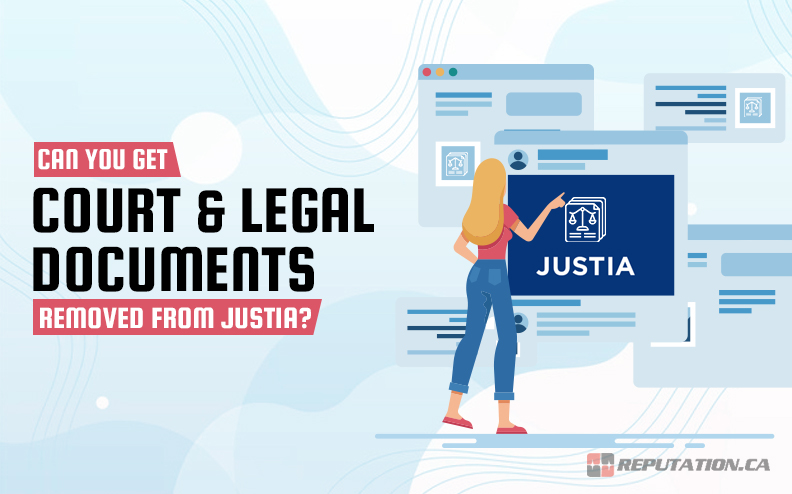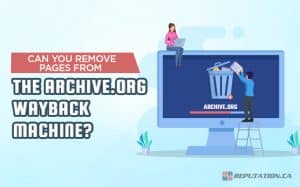Any time a person goes through a court system, there will be legal records created for the occasion. These are everything from the paperwork and evidence filed to the dockets and court filings that are created as a matter of course.
The problem comes later. Maybe it’s years later, long after you’ve forgotten about the court proceedings and dealt with the consequences if any. Still, all of that paperwork can come back to haunt you.
The most common cause is when you’re applying for a job. A common part of the candidate review process these days is a background check and, on a more casual level, a Google search. Your prospective employer will do a cursory Google search for your name and see what comes up. What, then, if what comes up is legal records hosted on a site like Justia?
People have lost jobs or been excluded from the candidate pool simply for having their name appear in court filings, whether or not they committed a crime, were convicted, or even if the issue is so frivolous as to be comedic. It’s a real problem, and it’s one that requires some kind of solution.
What is Justia?
First, let’s look at what Justia is. Whenever you’re searching for a name, if any sort of legal records exists, chances are good that Justia will be in the top few search results.
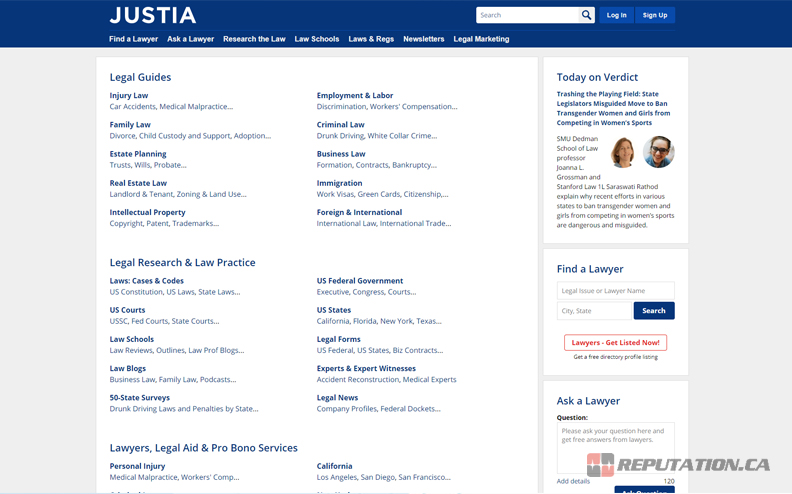
Justia is a legal resource website. They strive to host and serve public information about all kinds of legal matters, with very little restriction. The site is meant to be a resource for several groups of people.
- The public. Individuals can search Justia to find cases similar to a case they might be involved with, for names on legal threat letters and copyright trolls, for company names, and more. They can also search for lawyers in their area who specialize in a particular kind of legal problem they may be facing.
- Students. Anyone studying the law needs access to resources with case information, history, filings, and paperwork, so they can see how it’s done. While law students often have access to registration-only and closed systems, those systems are also often smaller or less comprehensive than a site like Justia.
- Lawyers. Though some people may think lawyers keep most legal information in their heads, the truth is, a law firm does a ton of groundwork building case precedent, citing past cases, and even referencing how cases are filed to ensure consistency with court rules.
- Employers. While some U.S. states limit what information can be asked about criminal or legal history, many employers still ask for such information, and many more will use sites like Justia to search just in case.
Justia offers a lot of different kinds of content, as well.
- Legal Guides. The law is very difficult to navigate, and most people do not have experience in handling legal situations. For example, do you know what you should do in the event of an auto accident? Justia has a guide for it.
- Law Research, Precedent, and Cases. Lawyers, legal aides, court aides, and others all need to reference past legal history. There are many different services that host and aggregate this information, but Justia is one of the easiest to navigate and access.
- Surveys and Data. Justia, being a big name in the legal space, often sends out surveys and polls, as well as harvests data from other sources. This allows them to monitor legal trends and opinions, and present this data to all who may be interested.
- Legal Services. Lawyers recognize that regular people in need of legal assistance browse Justia, so they can use Justia to advertise. Thus, the site hosts directories of lawyers and their specializations and allows lawyers to pay for sponsored listings.
- News. Justia follows big-name and influential cases and writes news and blog coverage of those cases, so anyone from laypeople to lawyers can keep up to date.
Of course, Justia also aggregates as much legal information as they can, which ranges from the most high-profile cases between giants like Oracle, Google, and the United States Government, all the way down to small-time charges like speeding tickets, estate disputes, and tax issues.
Is Justia Legit?
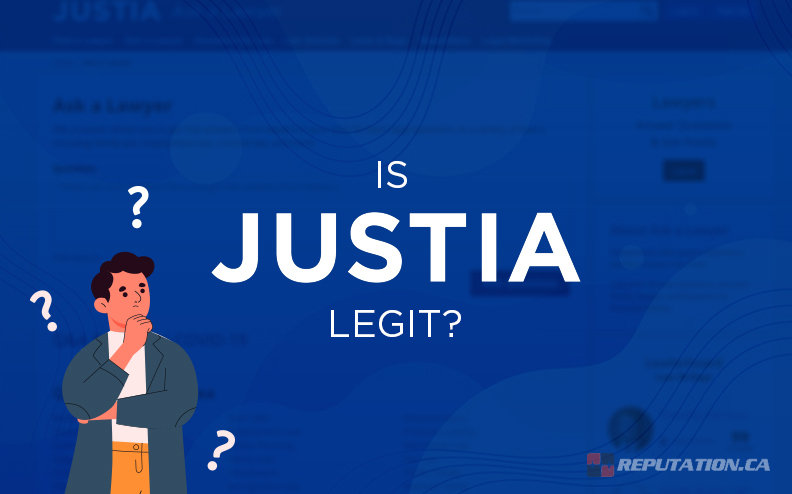
You might be wondering, is Justia a legit site? The answer is, yes.
Justia does not scrape, aggregate, or otherwise take information from sites that are not authoritative. They stick strictly to facts, existing case law, and ongoing case information. While they host personal information on individuals, it is only the information that is available in publicly visible court documents. They don’t scrape more information about individuals, and they don’t falsify information.
Justia is also not a troll site. What this means is that, while they do host potentially damaging information, they are not using it to ransom it. This is both good and bad. It’s good because it’s not an extortionate business practice. It’s bad, because it’s not illegal, and you cannot simply pay to have the information taken down, nor can it be taken down on a simple request like what we describe here.
One thing worth mentioning is that, while Justia does cover some international law, they primarily focus on the United States, U.S. territories, cases involving U.S. citizens overseas, and content from Latin America. Even then, they don’t have much that is not U.S.-centric. Given that Reputation.ca is a Canadian-focused site, and that the majority of our audience is Canadian, most of you won’t have to worry about Justia.
Even so, if you perform a Google search for your own name and find records on Justia, it can be worthwhile to deal with the issue.
How to Remove Records from Justia
First of all, it’s worth asking: can records be removed from Justia at all?
The answer is yes, but it’s a complicated process and it may not be possible.

Justia is legally allowed to post and host court information about individuals because that information – that is, court records – are considered a matter of public record. It’s not generally possible for an individual to hide that they’ve taken part in legal action.
Indeed, while there are a lot of laws being enacted or changed to help enhance and protect the privacy of individuals online and offline, even laws such as the California Consumer Privacy Act do not offer protection for matters of public record such as court documents.
There are two exceptions to this. The first is when a case involves something sensitive and the documents are sealed, redacted, or otherwise purged of personal information. The second is when the individual involved goes through the legal proceedings necessary to get the records expunged.
Thus, there’s a defined process for getting your court records removed, and it begins with the very legal system that created them.
Step 1: Figure out what kind of records are visible. The first thing you need to do is identify the kinds of records that are visible. This means investigating the results that come up when you search for your name on Justia. The reason for this is that some kinds of records are protected and, if your records fall into those categories, you will have an easier time getting them removed.

The specific kinds of records that are protected, unfortunately, vary from state to state. You can look up specific information about the state that has jurisdiction over the court cases involved. In general, protected records include information about adoptions, confidential name changes, juvenile non-offenders records, paternity records, and records about being committed to a facility for mental health or drug/alcohol reasons.
Other kinds of records can be sealed or expunged on a court order, but are not generally protected. Felony convictions and other criminal cases are a primary example.
Step 2: Determine the court system that created the records. In order to get records sealed or expunged, you must engage with the court system that has jurisdiction over the case. In most cases, this will be the same system that originally handled the case, though you may wish to consult with a lawyer if you are far outside of that jurisdiction (for example, living in Canada and having a prior record in Florida). You will then want to contact a lawyer familiar with and with the legal ability to practice law in that jurisdiction.
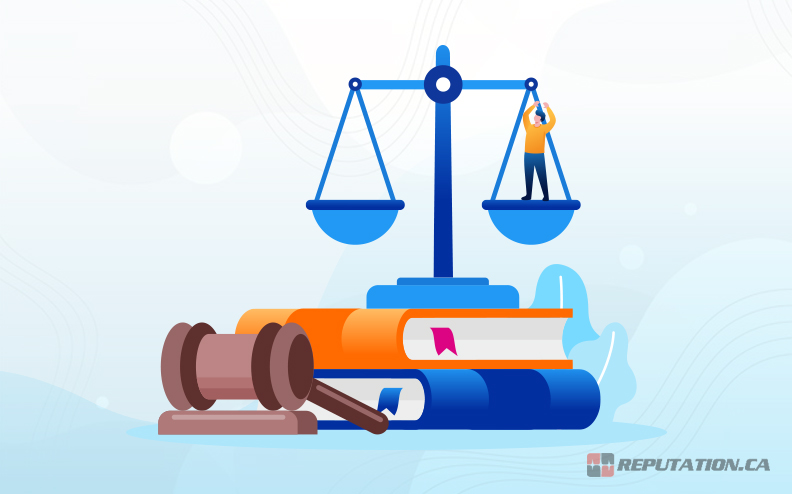
Step 3: Decide whether to pursue expungement or sealing. Two methods exist for removing court records: expungement and sealing.
Expungement is the complete removal of the records. Any record of the case will be removed as if it never existed in the first place. This is relatively rare, but very powerful when it happens. In order to qualify for expungement, you generally need to demonstrate a sufficient length of time without re-offending, have no additional criminal history, have no disqualifying offenses such as felony convictions, and complete any additional requirements such as parole or probation. Other requirements may be added and some may be removed, depending on the time and situation since the case, and the judge’s stance on the issue.

Sealing is a little different. Where expungement removes the case entirely, sealing simply hides it, locking it away and making the information in it private. Sealed records become a private matter and are no longer part of the public record, and thus a sealing can be used to remove records from sites like Justia. However, sealed records can then become unsealed later if the circumstances call for it, so the information is not permanently removed.
Your lawyer will be able to recommend which option is more likely to work and more beneficial for your situation. Speaking of…
Step 4: Talk to a lawyer, or a reputation management firm. Navigating the law is tricky, so unless you want to do a lot of learning very quickly, it’s best to consult with a lawyer. You have two choices here.
First, you can talk to a reputation management firm like us. We tend to have connections with lawyers and specialists across the country, as well as experience in every part of the process of removing records, from the legal process to the letters sent to Justia and other sites, to other elements of reputation management above and beyond legal removals.
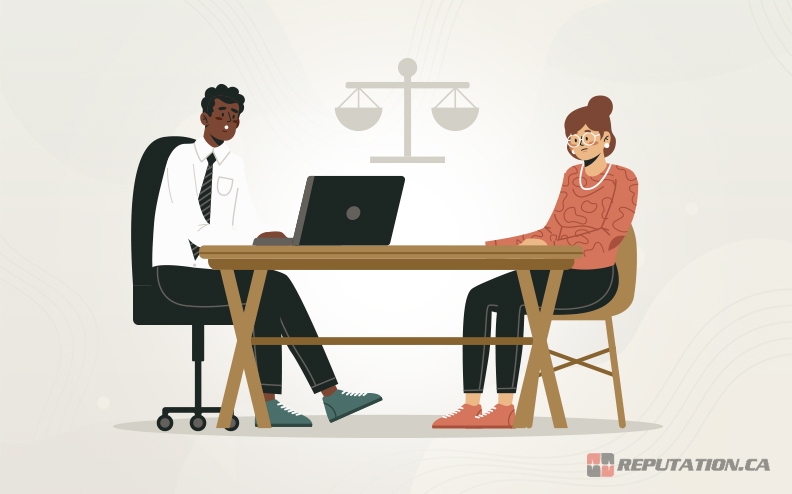
Second, you can talk to a lawyer directly. This allows you to get a more personal connection with the lawyer working on your case and can get you a more nuanced understanding of the situation. However, their job ends once the case is complete, and they cannot help you with dealing with Justia beyond drafting a letter for you, nor can they help you with other matters of reputation management.
Step 5: Proceed with the legal process. Once you have made your decision, consult with your chosen professional and go through the legal process. This may involve waiting, or it may have been enough time since the original case that waiting is not necessary. Ideally, your sealing or expungement will be granted and your records will be removed.
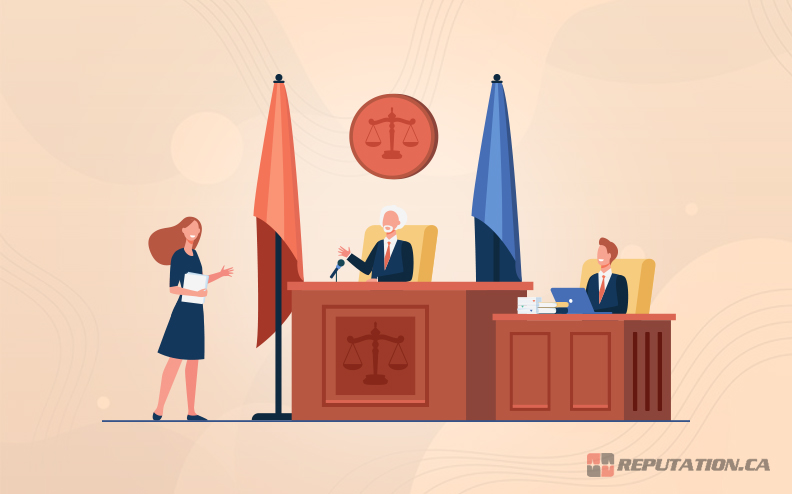
Step 6: If successful, send notice to Justia and similar sites. Once your records are removed from the court system or are sealed by that court system, you need to do the legwork of getting them removed from the internet.
Justia requires a written request sent to their support channel, with relevant court orders sealing or expunging the records (or presenting a case for reasonable accommodation, as described here.)
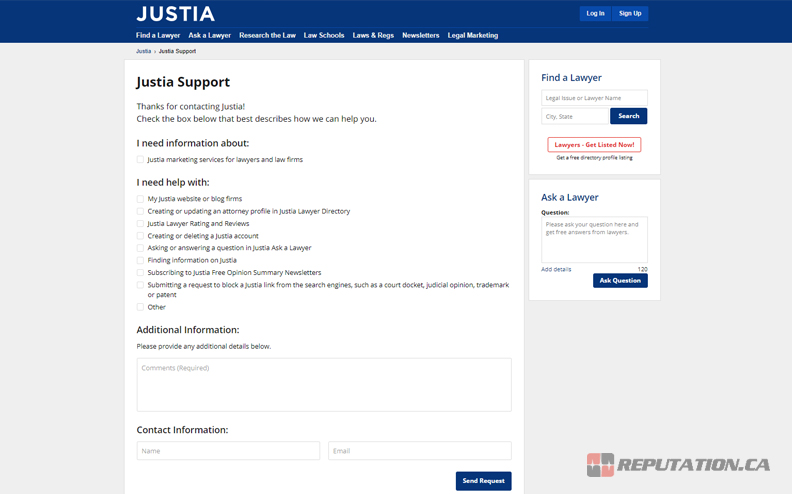
You may also want to look through other legal aggregator sites, such as Law360, PacerMonitor, CaseText, DocketBird, and CourtListener. These are just some of the many legal resource sites that, like Justia, aggregate and publish court records.
Additionally, you may want to look for secondary publishers who scrape information from primary sources like Justia. Some of these sites mirror information and can be worth sending a letter to have the information removed. Most, though, simply scrape information from first-party sites when a request is sent in and a report is paid for, so getting information removed from Justia will remove it from any site that scrapes Justia.
It’s a lengthy process of whack-a-mole with these sites, but after a few rounds, your personal information should be much more difficult to locate through a casual Google search. From there, you can pursue other forms of reputation management and personal brand building, and go about the rest of your life with more confidence that this weight isn’t dragging you down.




